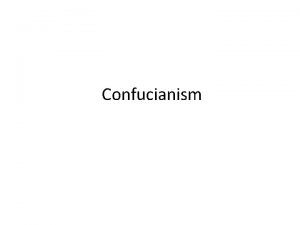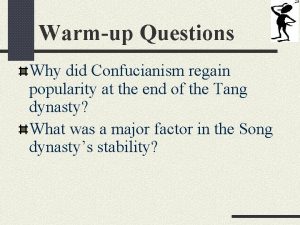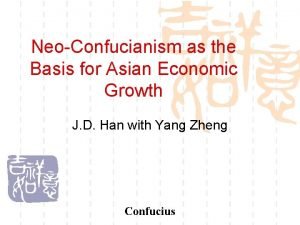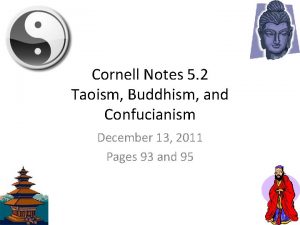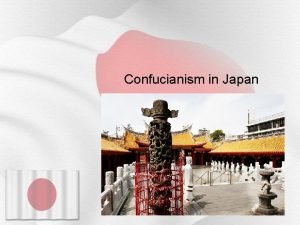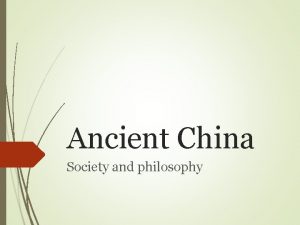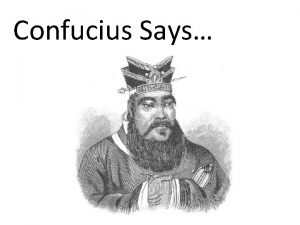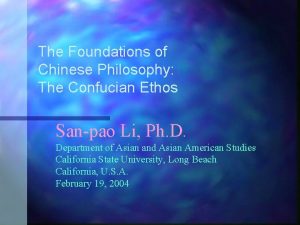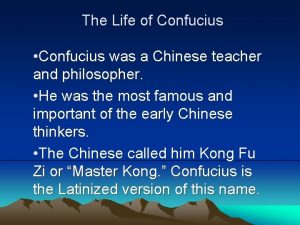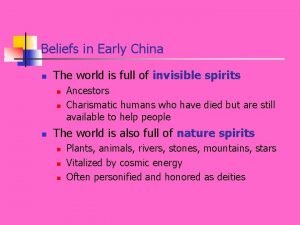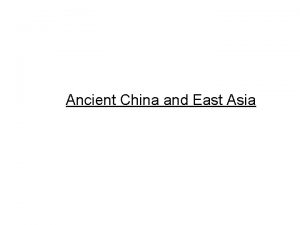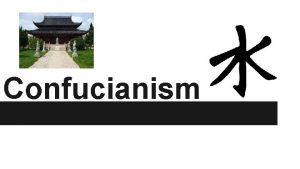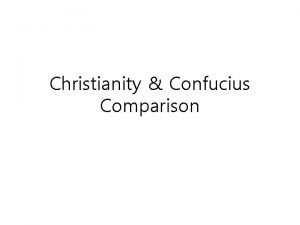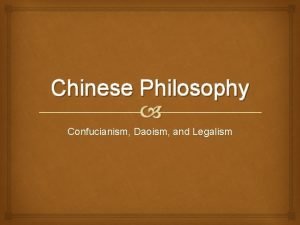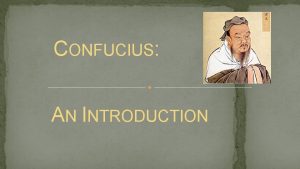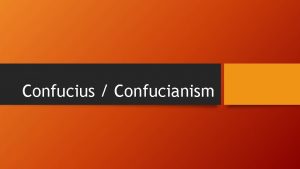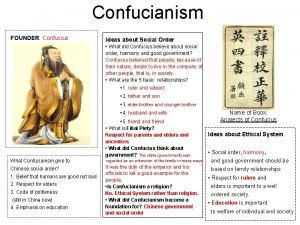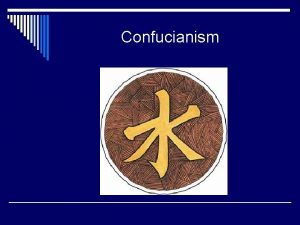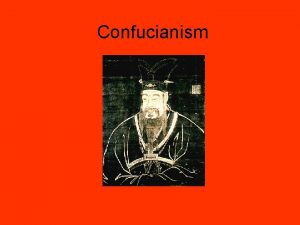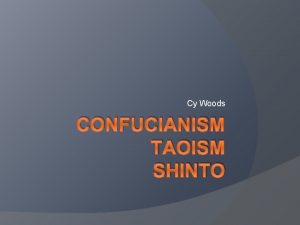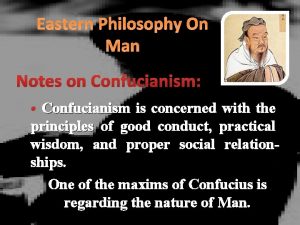Confucianism Confucianism Philosophy Goal Confucianism Founder Confucius A













- Slides: 13

Confucianism

Confucianism Philosophy Goal Confucianism Founder: Confucius A just and peaceful society How Achieved All people must respect and obey those above them. Those with authority should set a good example. Influence • • Civil servants were hired on the bases of ability and had to pass tests. Values such as respect for elders, proper behavior and love of scholarship became part of Chinese culture.

Belief Systems • Confucianism – Based on the writings of Confucius (ca 500 BCE) – Human nature is essentially good – Emphasized virtuous behavior – Hierarchal view of the universe • Focuses on relationships: ruler/subject, parent/child, husband/wife, older brother/younger brother, friend/friend. When each behaves correctly society functions correctly. – Moral foundations of govt.

Rise of Chinese Philosophies 5 Basic Social Relationships: Confucianism • Ruler & Subject • Founder: – Confucius (551 -479 B. C. ) • Ideas About Social Order: – Emphasis on family – Respect for elders (filial piety) • Father & Son • Husband & Wife • Older Brother & Younger Brother • Friend & Friend • Ideas About Government: – Emphasis on education • Could change a commoner into a gentleman – Trained civil service essential for good gov’t

Confucianism originated in China, but its influence spread to Korea & Japan over the centuries.

What did Confucius believe? • • People are basically good Need to be trained Training begins with family Love family, later society

The Five Virtues • • • Honest Trustworthy Hardworking Generous Loving

Peace and Order • The most important things to Confucius were peace, and order. • He felt that everyone had a proper role in society, and that if people were willing to accept their role, and fulfill it, that peace and harmony would abound.

Respect for Elders • In order to help people accept their roles in society, and establish order, Confucius outlined how individuals should treat one another. • The most important of these ethics outlined the responsibilities of children to respect and listen to their parents, and other elders.

Ethics • He also laid out ethics for how subjects should follow rulers, for how rulers should treat subjects, how husbands and wives should treat one another, and how friends should treat each other.

Confucian goal • Unconditional moral obligation to work for: – Universal human well-being – Order & harmony – peace & happiness in this life here on earth • Good ruler – – Morally good Reasonable Moderate – not extreme Kind and helpful • Implications for Government – Best rulers are wise – Lead by example – Developed & used civil service system • Exams and training for gov’t jobs

The primary sources of Confucian philosophy Confucius claimed to derive his teachings from “the Ancients, ” whose wisdom is embodied in “The Five Classics” (Wu Jing) • • • The I Jing (“Book of Changes”) The Shu Jing (“Book of History”) The Shih Jing (“Book of Odes” [poetry]) The Li Ji (“Book of Rites”) The Ch’un-ch’iu (“Spring & Autumn Annals”)

Confucianism originated in China, but its influence spread to Korea & Japan over the centuries.
 Confucius philosophy
Confucius philosophy Goal of confucianism
Goal of confucianism Neo confucianism vs confucianism
Neo confucianism vs confucianism Neo confucianism vs confucianism
Neo confucianism vs confucianism Confucianism vs taoism
Confucianism vs taoism Neo confucianism vs confucianism
Neo confucianism vs confucianism Why did aristocrats and kings like legalism
Why did aristocrats and kings like legalism Confucius says
Confucius says Confucianism values
Confucianism values By his teachings, confucius hoped to
By his teachings, confucius hoped to Confucianism beliefs
Confucianism beliefs Confucius dynasty
Confucius dynasty Confucius institute at moscow state linguistic university
Confucius institute at moscow state linguistic university Institut confucius
Institut confucius

